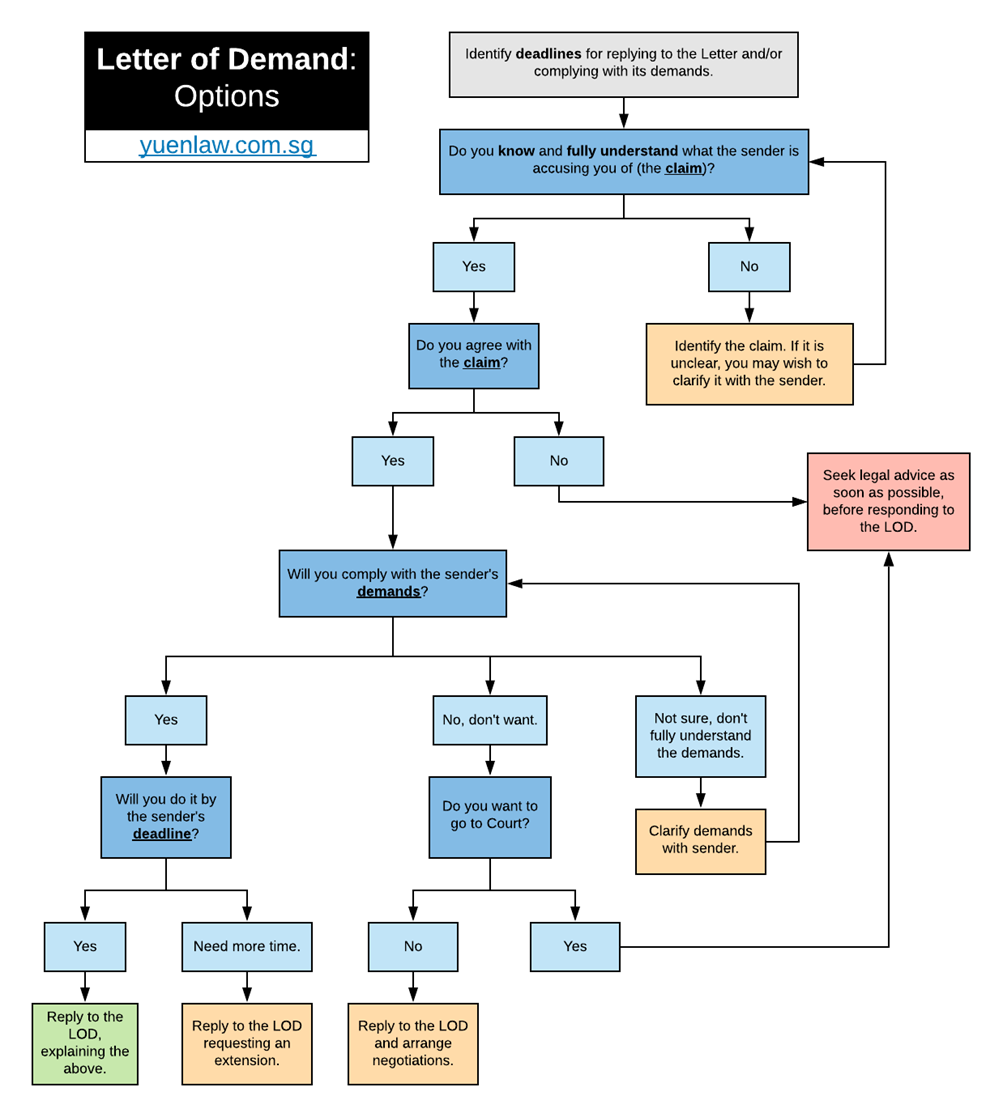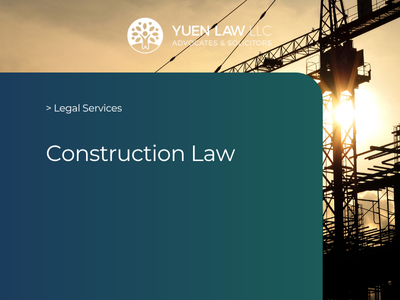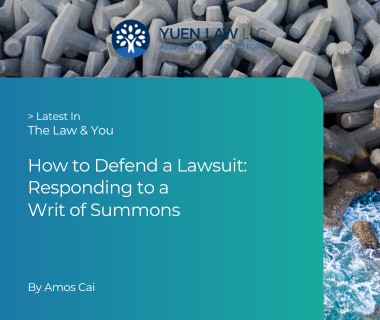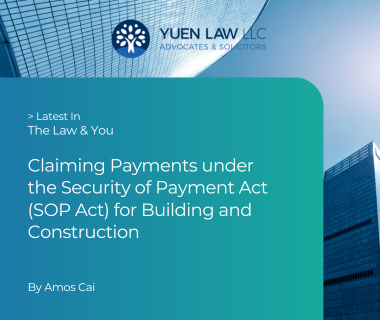
Here is a no-frills guide to the Letter of Demand you have just received, and the most essential dos and do-nots when responding to it.
This article will be divided into two sections.
(1) FAQs you may have about a Letter of Demand, and initial concerns someone who receives a letter of demand may have.
(2) How to Respond to a Letter of Demand highlights the most important things you should take note of when crafting your reply.
FAQs About a Letter of Demand
What is a Letter of Demand?
A Letter of Demand is exactly what it sounds like – a letter demanding that you do certain things, e.g. pay sums, perform obligations, etc.
How do I know this is a Letter of Demand?
Ideally, it should be labelled clearly as such. Otherwise, look out for key details, including and not limited to:
- A claim by the sender against you, e.g. alleging you have/have not done something;
- A list of demands you are being instructed to fulfil (e.g. “I hereby demand the following…”);
- A deadline for these demands; and/or
- An assertion that if the demands are not fulfilled by the stated deadline, the sender could take legal action against you.
Additionally, the letter of demand would usually be sent by a law firm on behalf of the actual sender (i.e. the person or organization making the claim against you).
Is a Letter of Demand the same as a Cease and Desist Letter?
No, they are not the same. However, they are similar. A Letter of Demand ordinarily demands that you do something, whereas a Cease and Desist letter usually demands that you stop doing something. A Cease and Desist will also generally assert that the sender would take legal action if the acts alleged of continue beyond the deadline set.
Is a Letter of Demand the same as a Statutory Demand?
No, a Letter of Demand is not the same as a Statutory Demand. Here is how they differ:
Letter of Demand |
Statutory Demand |
| Anyone can send or receive it | From a creditor to a debtor |
| Can inform recipient about various demands, and various actions the sender will take if the recipient does not comply | Specifically informs debtor that if the debtor does not pay, bankruptcy proceedings may start |
| Not legally binding; no prescribed format | Legally binding; needs certain content points to be legally valid, as specified in bankruptcy laws |
Do I need to go to Court?
The short answer is no. The sender is only asking you to carry out demands as stated in the letter of demand.
Since I do not need to go to Court, can I ignore this?
It would be best not to ignore a Letter of Demand. The Letter of Demand itself is not a legally enforceable court document. However, if you ignore the Letter of Demand, its sender may take legal action against you. Additionally, if you repeatedly ignore Letters of Demand, the sender could rely on this in proceedings to your detriment.
What exactly are my next options after receiving a Letter of Demand?
Here is a flowchart summary on what to do after receiving a Letter of Demand. It is not exhaustive. The steps will be elaborated on below.

If I dispute the claim, should I take my next steps in or out of Court?
You should pursue a settlement out of Court if you disagree with the allegations against you, yet you want to save on legal fees and negotiate better terms compared to the demands the sender is making of you in the Letter of Demand. This option is especially favoured if you prefer to preserve the relationship rather than weaken or even lose it due to legal action, and if the sender is willing to enter such discussions.
If I settle out of Court, do I still need a lawyer?
You may wish to engage a lawyer to assist you with replying to the Letter of Demand and conducting negotiations on a “without prejudice” basis.
What is “without prejudice?”
In the above context, “without prejudice” means even if the matter goes to Court, information or positions revealed during negotiations cannot be used in Court as evidence against you. This protects your best interests during negotiations, letting parties settle freely and fairly.
How to Respond to a Letter of Demand
Checklist for Responding to a Letter of Demand
Regardless of your desired course of action, this is a general and practical checklist for responding to a Letter of Demand.
Note the deadline for reply. If necessary, call the sender to say that you need more time to reply.
- Extensions for reasonable concerns, such as finding a lawyer, are usually granted.
- Where possible, specify a date by which you will reply to show your reasonableness and commitment.
- You may also wish to provide a timeline of the actions you will be taking until you formally reply to the Letter of Demand.
Decide whether you wish to offer settlement proposals or monetary proposals
If you wish to settle, or propose instalment payments, expressly state you will be making these on a “without prejudice” basis. That is, similar to the above, these settlements or instalments cannot be held against you should this matter ever reach the Court.
Crucially, where you make a without prejudice proposal to pay instalments, specify concrete amounts that you will pay by specific deadlines. This promotes accountability and communication, staving off any legal action.
You are strongly advised to seek legal advice when deciding your next actions after receiving a Letter of Demand and drafting your reply.
For further assistance, do contact us to make an appointment regarding Letter of Demand in Singapore.





